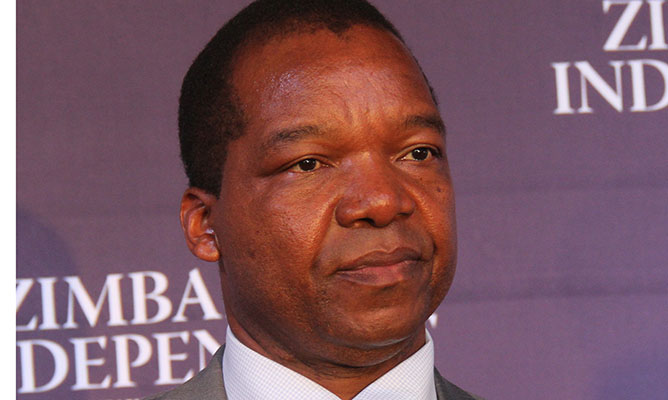
BY VENERANDA LANGA
RESERVE Bank of Zimbabwe (RBZ) governor John Mangudya yesterday told Parliament that a cartel of about 10 people was controlling the US$11 billion in the country and half of bank deposits.
Mangudya, who was speaking before the Public Accounts Committee chaired by Tendai Biti, also hinted that the cartel’s influence and power was much more than manipulating the financial system.
“If you look at currency issues, you find that shops and everyone are charging in United States dollars and we are suffering. Can’t you do anything about it?” Biti asked Mangudya. The central bank boss said these were the effects of exchange rate instability, adding that the target should be to match money supply with the exchange rate so that there is stable money supply in the country.
Last month, the central bank froze bank accounts of Sakunda Holdings, controlled by President Emmerson Mnangagwa’s adviser Kudakwashe Tagwirei, Spartan Securities, Croco Motors and Access Finance, and their related entities over alleged money-laundering and foreign currency manipulation.
Access Finance has since been cleared and resumed trading.
Biti pointed out that there was no improvement in the cash situation and that EcoCash agents were still charging 40% premium for cash which was still scarce in the country.
Mangudya responded: “It is because of scarcity of cash that they continue charging that premium. As of yesterday, the deposits of coins and notes stood at $742 million, and of that, notes constitute 4%. We have $19 billion of money supply, of which $11 billion of that is in foreign currency in FCA accounts. This means that the Zimbabwean notes are about $8 billion.”
- Chamisa under fire over US$120K donation
- Mavhunga puts DeMbare into Chibuku quarterfinals
- Pension funds bet on Cabora Bassa oilfields
- Councils defy govt fire tender directive
Keep Reading
Biti then asked the RBZ governor to explain his motive of introducing SI 142 of 2019, which banned the use of multi-currency and introduced the Zimbabwean dollar as the sole legal tender, when people were failing to get the cash.
Economists say money supply (M3) in Zimbabwe increased to US$17 billion in July from US$14,7 billion in June of 2019, and were at a record low of US$2,9 billion in January 2009.
“The issue that is affecting exchange rate stability is that we lack confidence and that is the key mover. Eighty percent of the people in this country have no access to foreign currency and we are between a hard surface and a rock,” Mangudya said.
Biti then asked: “When you did your February monetary policy statement, you said that the broad money supply was US$11 billion and you said it belonged to 10 or so people. So when you talk about lack of foreign currency, you are not talking about rural people. It means that the ones who need US dollars are those 10 people.”
Responded Mangudya: “Yes, 50% of deposits in this country are owned by these 10 people. However, I am not going to explain this today. It is actually bigger than what you are saying. I will explain it soon when the RBZ has a workshop with MPs.”
Biti then asked Mangudya to explain the $1,5 billion (in local currency) subsidy for fuel issued out by the RBZ on August 31, 2019 and who the beneficiaries where?
“The exchange rate on fuel is different from the rate on the market to ensure that fuel is affordable to the people. We started at the rate of 1:2,5 and now it is 1:15,5 at the interbank rate and that differential are the exchange losses,” Mangudya said.
He was then asked to explain if fuel companies were purchasing the US dollar from banks at the 1:13 interbank rate, to which he responded: “Yes, banks issue letters of credit at 13:1, but their rate is 15:1. The 2:1 difference is a subsidy that government is carrying as a safety net. Nigeria subsidises at 20% and there is no country in this world that does not do subsidies.
“The RBZ Act is clear that any losses suffered by the RBZ through exchange rate losses is borne by government. The subsidy we pay to banks is in Zimbabwe dollar, but we spend US$80 million per week for fuel.”
Biti then asked him to explain why he was giving subsidies to fuel companies when people can actually buy fuel in US dollars.
“Government does not have to expend any amount of money. We, as a committee, want to know why you are giving a subsidy to fuel when the real subsidy should be given towards electricity, where we are suffering due to 18-hour blackouts which is a multiplier effect to gross domestic product. Is it not better to give a subsidy to electricity and not fuel?” Biti asked.
Mangudya responded: “I am pleased that you have said that, but the fuel subsidy is not to fuel companies, but to the people of Zimbabwe.”
Biti suggested that it would be better to have certain garages that specifically sell fuel in US dollars so that fuel companies do not trouble the RBZ requesting for foreign currency.











